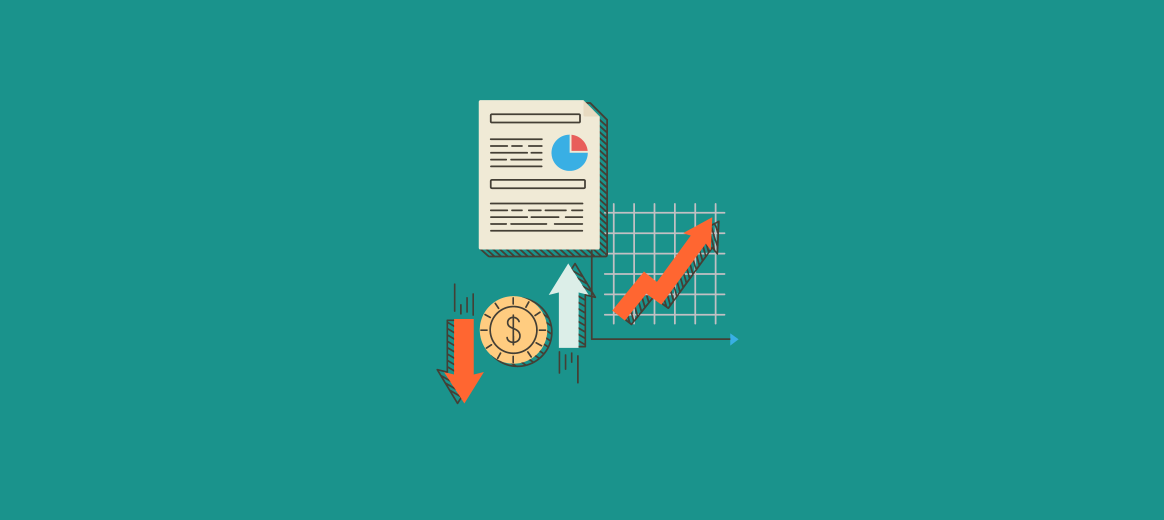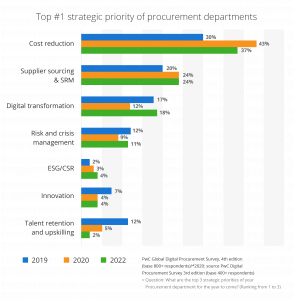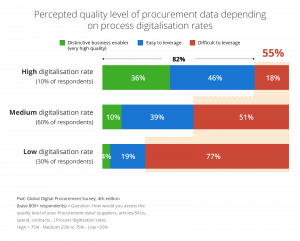Procurement specialists are tasked with sourcing direct materials, ensuring that these materials arrive on time and minimizing costs as much as possible. While striving to accomplish these goals regularly, they are faced with ever-changing external factors, such as economic conditions. These directly impact procurement efforts, and they must be carefully and regularly monitored to ensure that the best procurement decisions are being made.
Understanding Procurement Market Intelligence
Before you can comprehensively explore the benefits of procurement market data and analysis, you must understand what it is and how the data intelligence is collected. Procurement market intelligence may be based on manual research, such as through Google searches and other labor-intensive efforts. The intelligence may also be based on third-party services that gather data from multiple sources for analytical purposes. Regardless of the source of the data, there are three primary aspects of procurement market intelligence that must be aligned.
Market Research
The first aspect of reliable supply market intelligence involves determining what types of data should be collected and how it will be accessed. Additionally, you must determine how the data will be stored and analyzed. While these seem like basic concepts, they lay the foundation for supply market intelligence and deserve ample, focused attention.
Competitive Intelligence
Another important component is competitive intelligence, which relates to gathering and analyzing a multitude of factors that may be value levelers. These may include disruptors, competitive dynamics, and other factors. Data in these areas must be gathered quantitatively.
Supply Markets Analytics
In addition to focusing on these elements, intelligence is also based on supply markets analytics. The procurement specialist must actively gather and analyze accurate data about the company’s specific supply markets. As is the case with other factors feeding into procurement market intelligence, data related to supply markets changes regularly and quickly at times.
The Importance of Procurement Market Intelligence
Given the fact that there are numerous moving parts in procurement analysis that each requires ample attention, a manual data-gathering method may not be effective or feasible in many business environments today. However, regardless of the method used, procurement market intelligence plays numerous vital roles.
Identify the Right Supplier
Approximately 24 percent of businesses consider vendor sourcing and vendor relationship management to be a strategic priority. Increasing threats on supply chains like health crises, price increases, shortages, and inflation make it challenging to secure reliable vendors.
The effects of engaging the wrong suppliers can be financially draining. Vendors with poor or inconsistent performance can also hurt business operations, or worse, hurt your company’s reputation. Through high quality procurement market intelligence, these issues and concerns may be minimized.
In another blog, we discussed the benefits of implementing supplier management, which includes increased efficiency, improved compliance, reduced costs, and improved reliability. Identifying the correct suppliers for your organization and then managing them appropriately will be key to your procurement efforts.
Analyze Spend Data and Trends
A PWC study identifies tremendous benefits experienced by businesses that used digitalization to make the most of their data. Low levels of digitalization in procurement departments makes it challenging for 75% of companies to leverage their data.
The results reveal that businesses with high digitalization rates find it easier to leverage procurement data and use it as a distinctive business enabler.
The ability to accurately and quickly analyze spend data and trends alleviates other recognized pain points. For example, many procurement specialists have stated off-budget spending and overspending are serious concerns in their organization. We have previously discussed the importance of spend analysis within procurement.
Complete Supplier Analysis and Risk Monitoring
Crisis risk management and compliance are among the top five drivers for procurement digital transformation. Non-compliant spending increases average costs by 12 to 18%.
The ability to analyze existing supplier relationships and to assess risk factors can be improved through procurement market intelligence. Our blog on supplier compliance discusses the importance of managing and monitoring suppliers once you have considered their capabilities.
Improve Credibility
Businesses across a wide range of industries require department management approval for requests. Department managers must analyze the requests closely to determine if the cost is justified, vet the supplier, and make critical decisions. When the order or request is backed up by solid intelligence data, it gains credibility. More than that, department managers are able to make informed and superior decisions in many cases.
Conclusion
While there are manual methods available for gathering and analyzing procurement market data, the reality is that many businesses across a wide range of industries struggle with common pain points that could be addressed through automated processes. Accurate and timely intelligence has helped many companies to make better decisions regarding new and current suppliers. They have been able to save money, reduce risk and achieve other essential benefits. With this in mind, procurement specialists may need to analyze how they gather and analyze market data in their departments and identify possible areas for improvement.




